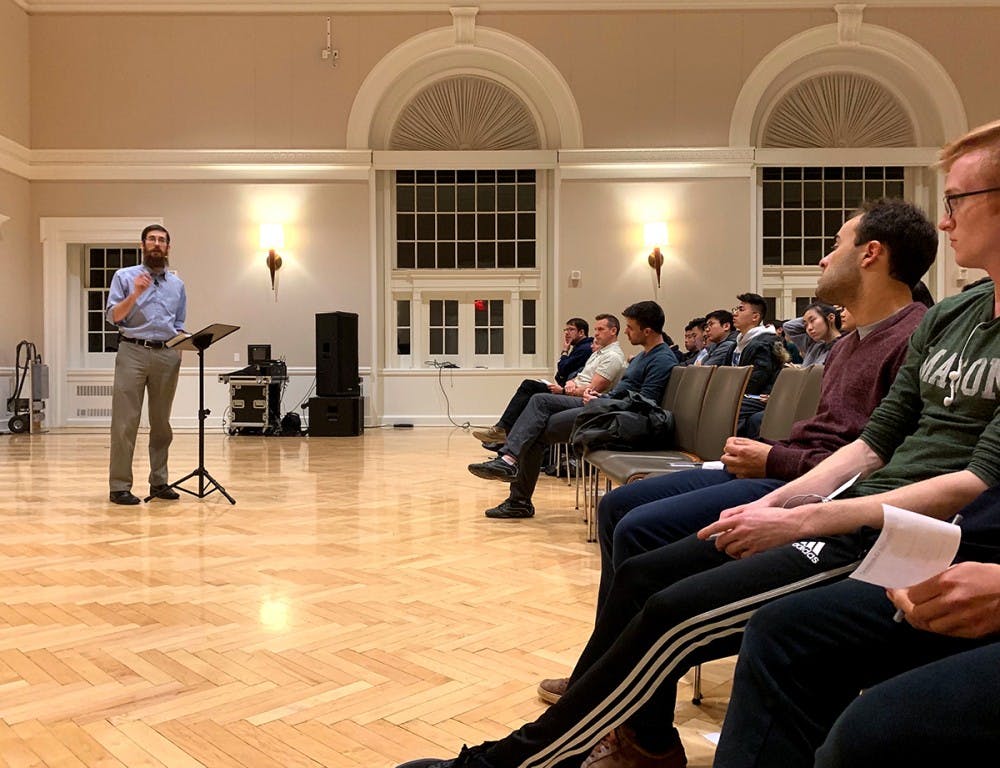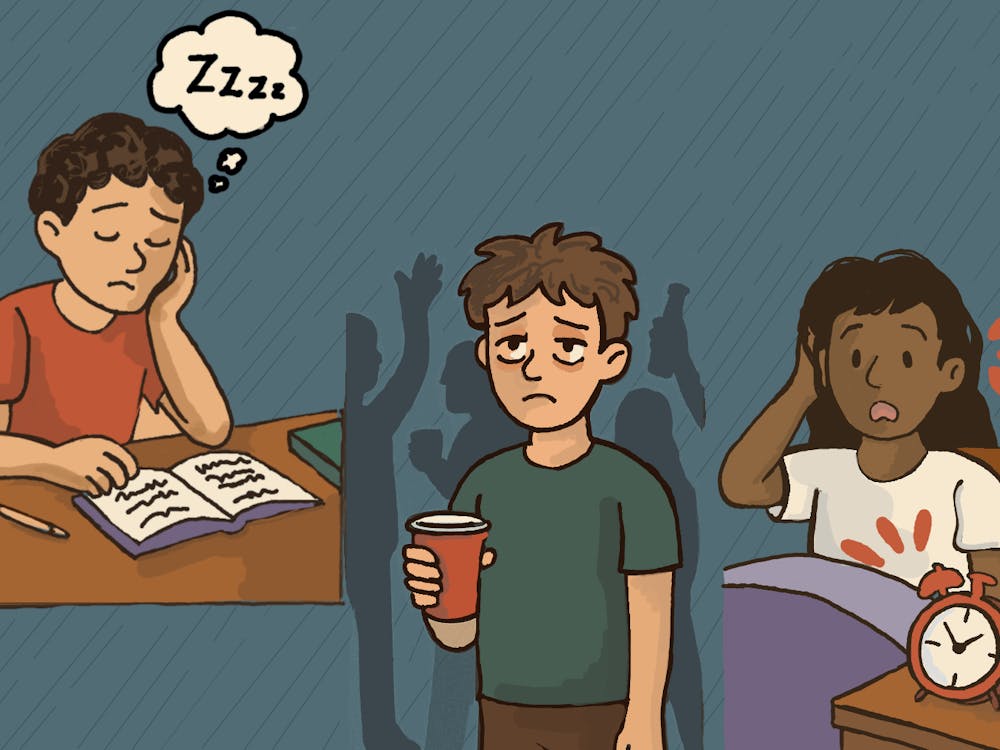Last week students stood outside of Minor Hall with a poster bearing the question, “Is God Sexist?” They were asking this polarizing question not to start an argument but to bring attention to an event being hosted this week called Hoos Got Questions.
For the past year, nine Christian ministries on Grounds have been collaborating in order to pull off this event in which speakers from Ravi Zacharias International Ministries are giving lectures on 15 different questions regarding the Christian faith. A few of the ministries that were involved in the process were Chi Alpha, Inter-Varsity and the Navigators. The questions range from topics such as “Does the Bible support slavery?” to “Are science and faith in conflict?”
Jenny Shin, a Batten alumna and staff member for Chi Alpha Christian Ministry, was one of the leaders who helped to plan the event.
“We believe that questions are out there, and sometimes we’re scared to ask them, or sometimes we’re scared to be asked them,” Shin said. “But those questions matter, and those questions, I believe, have answers.”
Attempting to answer those difficult questions is precisely the goal of the Hoos Got Questions event.
The RZIM speakers are trained defenders of the Christian faith, known as apologists, who have spent over 30 years engaging with complex questions about Christianity and the Bible. RZIM has hosted events similar to Hoos Got Questions at college campuses across the nation, such as Yale University and the University of California, Berkeley. This week they are here to answer the questions of the University’s students.
Each day this week, RZIM is endeavoring to answer three questions a day through two lunchtime talks and one nighttime talk at different locations across Grounds. The speakers begin by giving their take on the topic at hand and conclude by opening up the floor for students to ask questions. The event is open to all University students.
“[We hope to attract] anyone who has ever had questions about faith, anyone who has ever had questions about Christianity,” Shin said. “Hopefully it will be a transformative week for many people.”
Hoos Got Questions is a unique event because the Christian fellowships at the University are working together to put it on. The fellowships are taking turns hosting the week’s talks and have coordinated to bring RZIM to Grounds.
“Though we are different organizations, we all believe the same thing, and we want to see the same thing happen, which is to see kingdom impact at this University,” Shin said. “We want to see people engaged in talking about the Gospel.”
On Monday night, RZIM speaker Michael Ramsden addressed the program’s third topic of how to reconcile differences in a culture of conflict. He began by discussing his take on how conflict grows in society. Ultimately, Ramsden advocated for a shift away from today’s victim-based culture, in which people lavish in being wronged and refuse to let go of their grievances. He argued that as a culture, we must learn to forgive in a more perfect way.
After Ramsden’s talk, students were provided with the opportunity to ask questions of the speaker. One such student, fourth-year College student Dominique DeBose, asked how radical forgiveness of the kind that Ramsden promoted might be applied to racial tensions in America. Ramsden answered the question by referencing his own experience with racial tensions between Cyprus and Turkey, acknowledging that as a Briton, he did not feel qualified to speak directly to American racial divides.
“I did really appreciate how he did take from his own experience, as being from Cyprus,” DeBose said. “Him being of an ethnic minority background and kind of applying his own story to that, I understood that he was listening, and he was trying to understand my question.”
While she struggled to apply Ramsden’s message directly to relevant racial tensions in the United States, DeBose appreciated the thoughtful nature of Ramsden’s response. For DeBose and other students, the talk left some remaining questions regarding racial conflict specifically. In general, however, she was interested in an opportunity to ask about conflict within the context of religion.
“Talking about race in Christianity is really important for me,” DeBose said. “And I think it’s really hard for people to bring that up in Christian spaces because we're supposed to be so forgiving and loving, and kind of that shields the severity of the reality of many people in America.”
Another attendee, third-year Education student Alex Adkins, was overall impressed by the expertise of the speakers.
“What I've noticed most from this organization [RZIM] is that they take the posture of presenting questions and being on your side instead of just trying to debate, which is very novel among college students,” Adkins said.
First-year Engineering student Alyce Hong was similarly commendatory. She was interested to hear a discussion of the basis of conflict and how cycles of hatred are perpetuated. Hong also recommended that other students come to the week’s remaining talks.
“I think it’s a good opportunity, especially because the Ravi Zacharias International Ministries is such a well known apologetics ministry, and that they're taking the time out of their schedules just to come here to answer all these questions,” Hong said.
Students were similarly engaged with talks on Tuesday, including such hefty topics as “Does God Exist?” and “Are Science and Faith in Conflict?” on Wednesday.
The Monday night talk with Ramsden attracted about 500-600 students, while nighttime talks on Tuesday and Wednesday garnered around 300 students, with the lunch events gathering 50-60 students each day.
The Hoos Got Questions event will wrap up Friday with three final talks — “Can a scientist believe in the resurrection?,” “Is there a purpose to life?” and “Longing for justice in an unjust world.” More information about these events can be found on the “Hoos Got Questions?” Facebook page.







